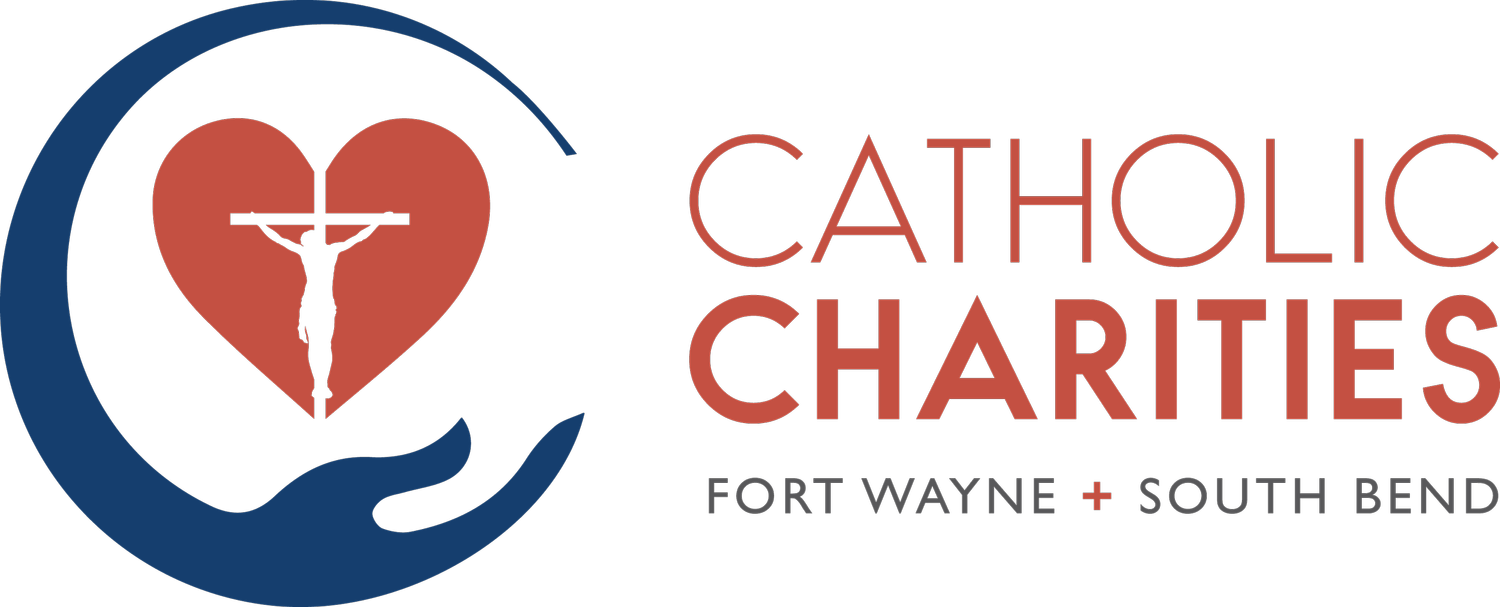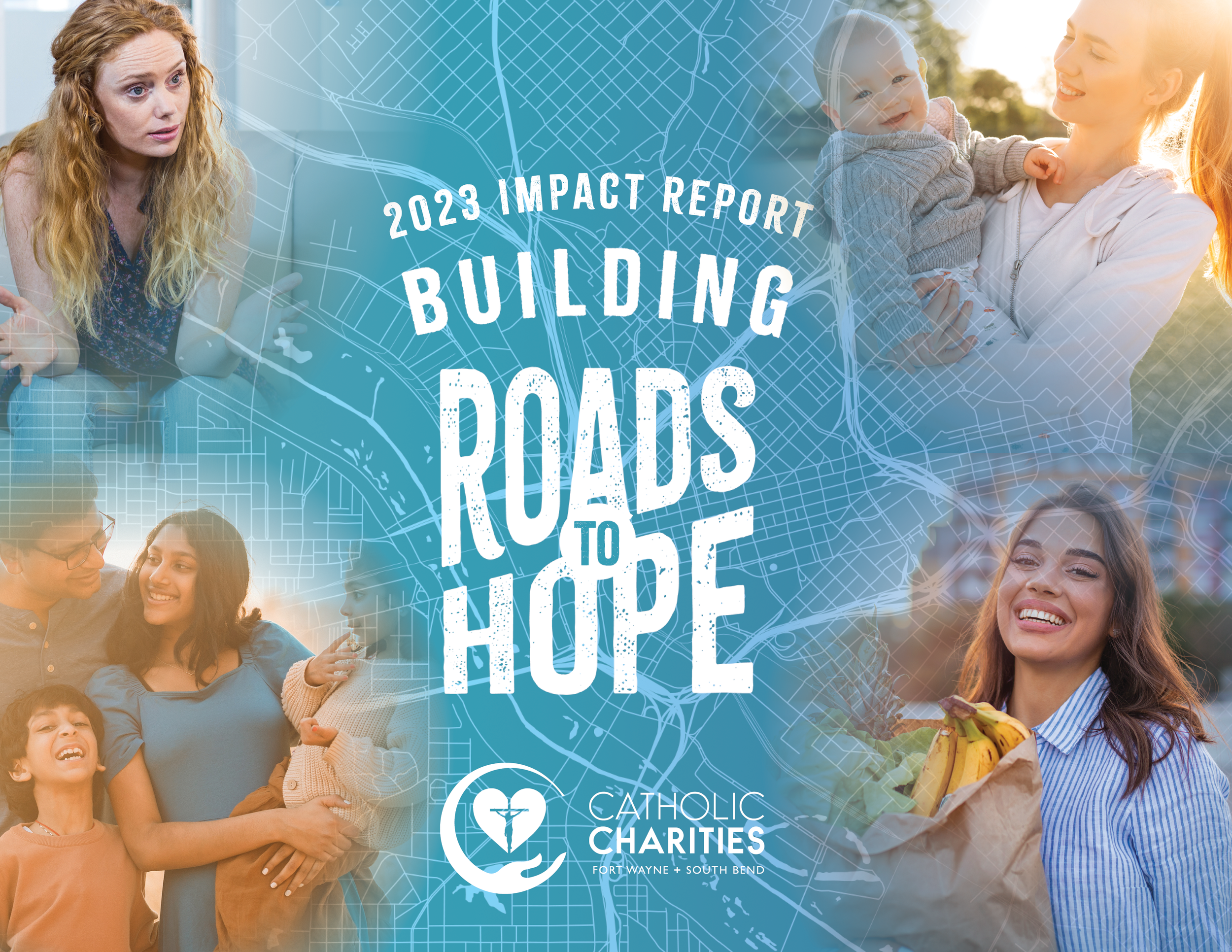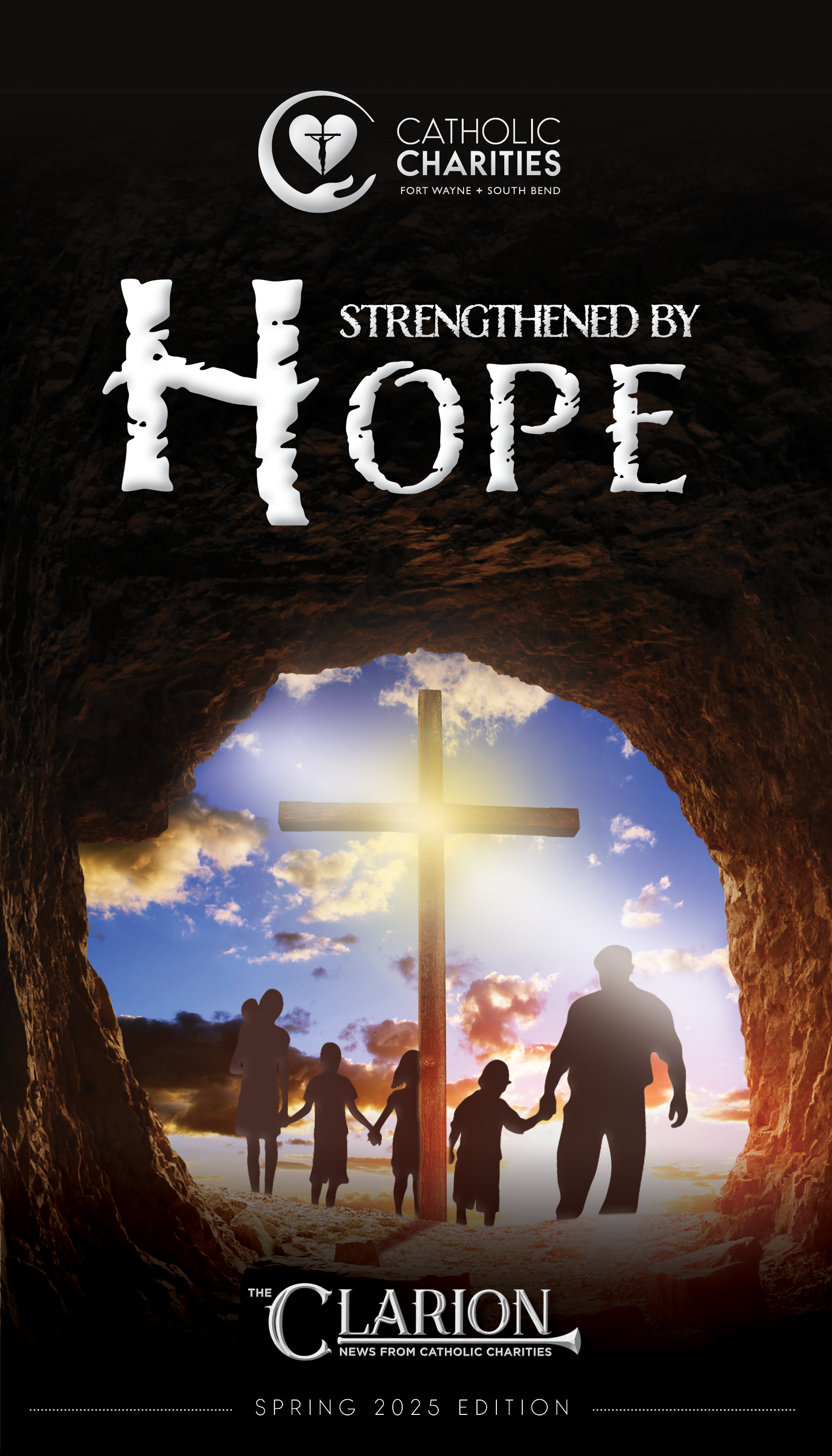Building Roads to Hope
More than a century, we have remained committed to helping individuals realize and fulfill their God-given potential, not because they are Catholic, but because we are. Enkindled by the spirit of Christ, “we serve with hearts that see where love is needed and act accordingly.”
Through our 20+ programs, we live out our Catholic identity, build trusted relationships with our vulnerable neighbors, and provide both the hand up and the hope they need on their journey towards self-sufficiency.
OUR MISSION
To serve all those in need as Christ calls us to do.
OUR VISION
We imagine a world where each person is filled with hope for the future. We seek to support and inspire our neighbors so they can transform their lives by fulfilling their own God-given potential.
REGIONALLY OPERATED
We are separately operated from Catholic Charities USA and the Diocese of Fort Wayne-South Bend. As the Human Service Arm of the Church, we work closely with Bishop Rhoades to respond to the unique needs of our neighbors within the 14 counties of northeast Indiana.

WE ARE THE
HUMAN SERVICE ARM
OF THE CHURCH
carrying out the charitable work of our Church to the most vulnerable in Northeast Indiana.
LAST YEAR:
PEOPLE SERVED:
SERVICES PROVIDED:
FACTS:
cents of every dollar donated goes directly to support programs
Catholic Charities has been serving the most vulnerable in our diocese for over 100 years.
Not only did we help a lot of people, but we also did it fiscally responsibly…
Annual Reports
Clarion Newsletter

Our Inspiration
-
Life and Dignity of the Human Person
Call to Family, Community, and Participation
Rights and Responsibilities
Option for the Poor and Vulnerable
The Dignity of Work and the Rights of Workers
Solidarity
Care for God's Creation.
-
Feed the hungry: Providing food to those who are lacking.
Give drink to the thirsty: Offering water or other beverages to those in need.
Clothe the naked: Donating clothing or providing basic necessities.
Shelter the homeless: Offering a place to stay, providing a safe and stable environment.
Visit the sick: Offering comfort and support to those who are ill.
Visit the imprisoned: Spending time with those in prison, offering companionship and support.
Bury the dead: Providing a dignified burial for those who have passed away.
-
Instructing the ignorant:
Sharing knowledge and wisdom with those who lack understanding, helping them learn and grow.
Counseling the doubtful:
Offering guidance and support to those who are uncertain or struggling with decisions, helping them find clarity and direction.
Admonishing the sinner:
Gently correcting and guiding those who have sinned, helping them to repent and reconcile with God.
Comforting the sorrowful:
Providing solace and support to those who are grieving or suffering, offering empathy and compassion.
Bearing wrongs patiently:
Resisting the urge to retaliate or seek revenge when wronged, choosing instead to forgive and be patient.
Forgiving all injuries:
Letting go of resentment and bitterness, choosing to forgive those who have wronged us, promoting reconciliation and healing.
Praying for the living and the dead:
Interceding for the spiritual well-being of others




































